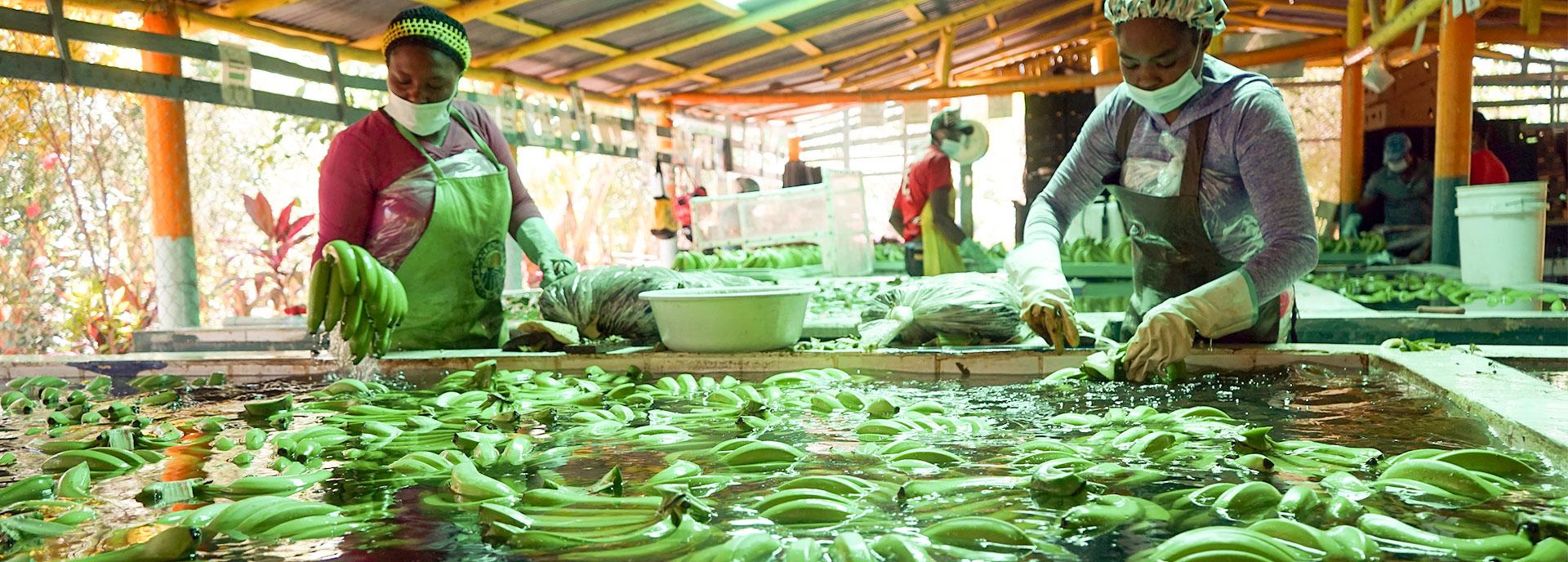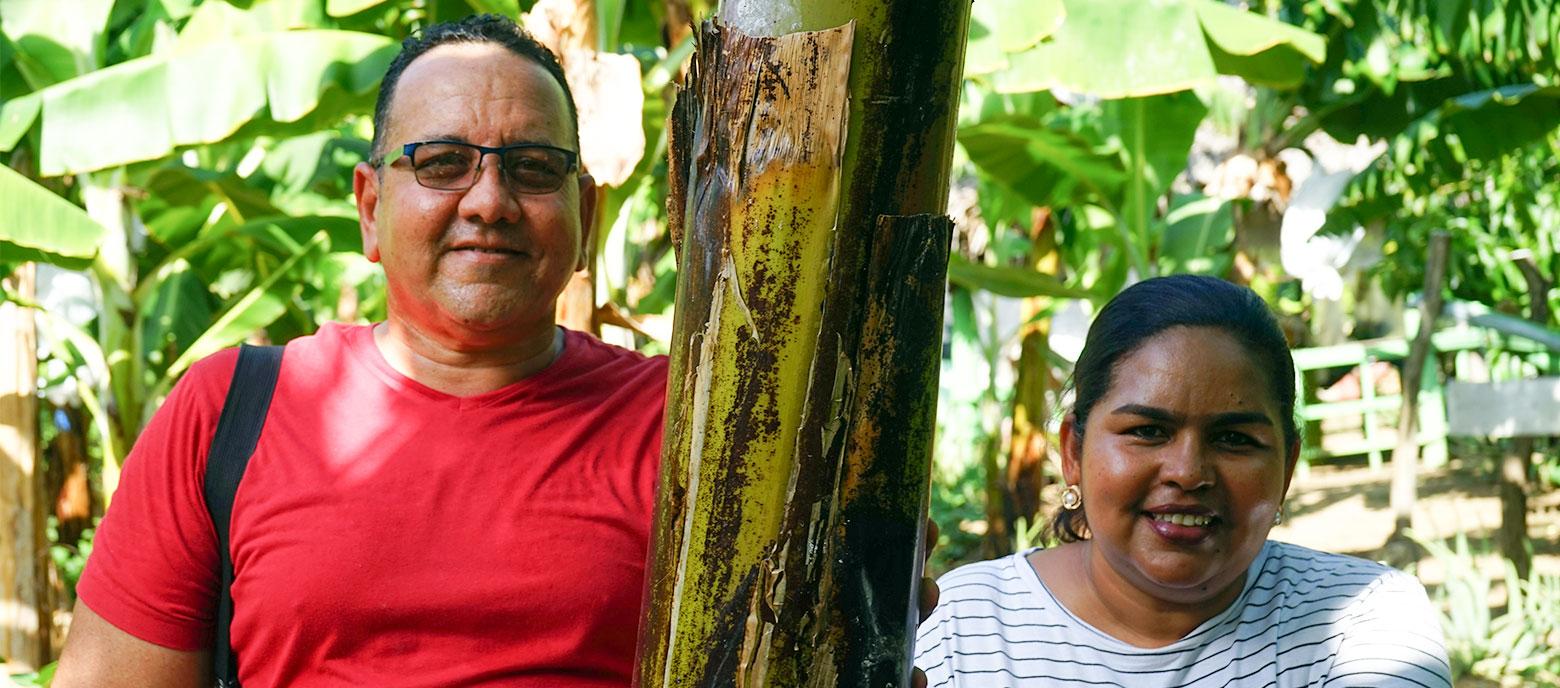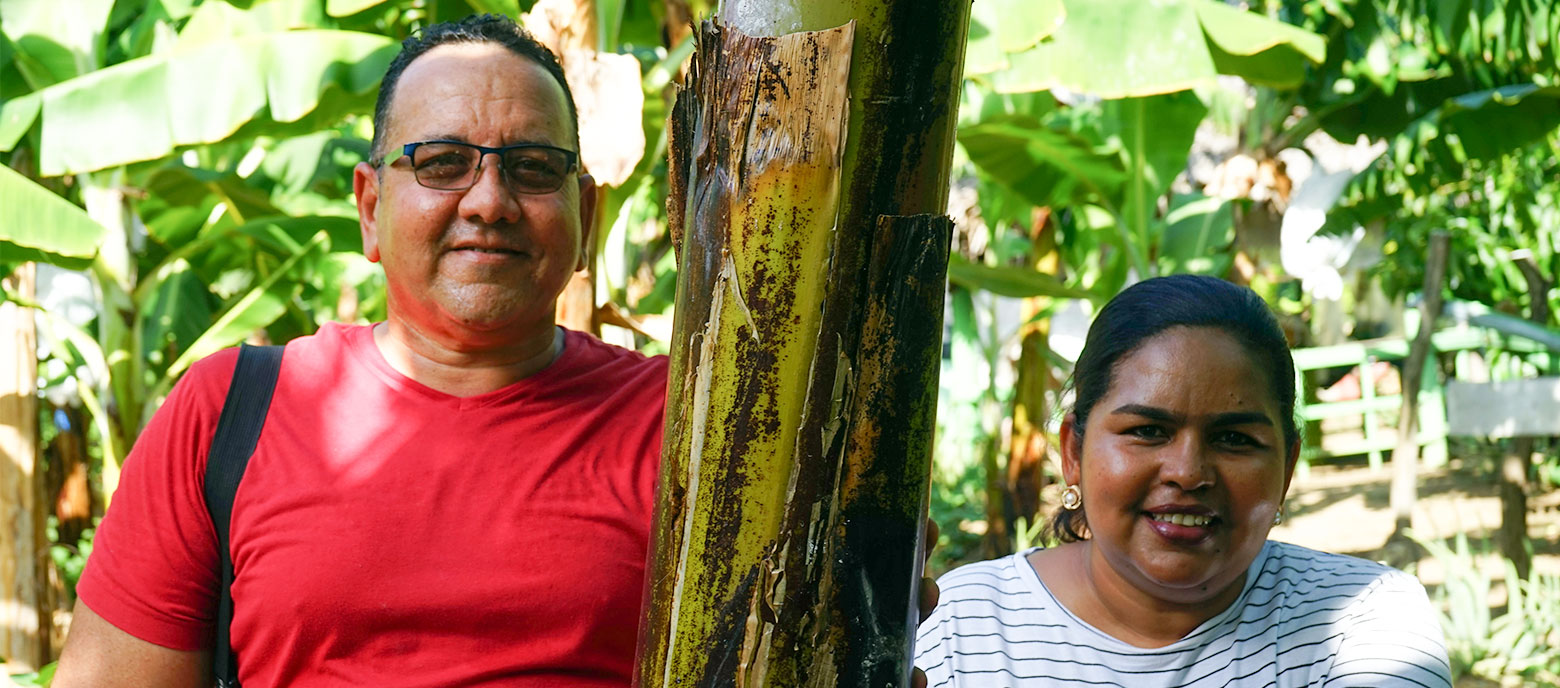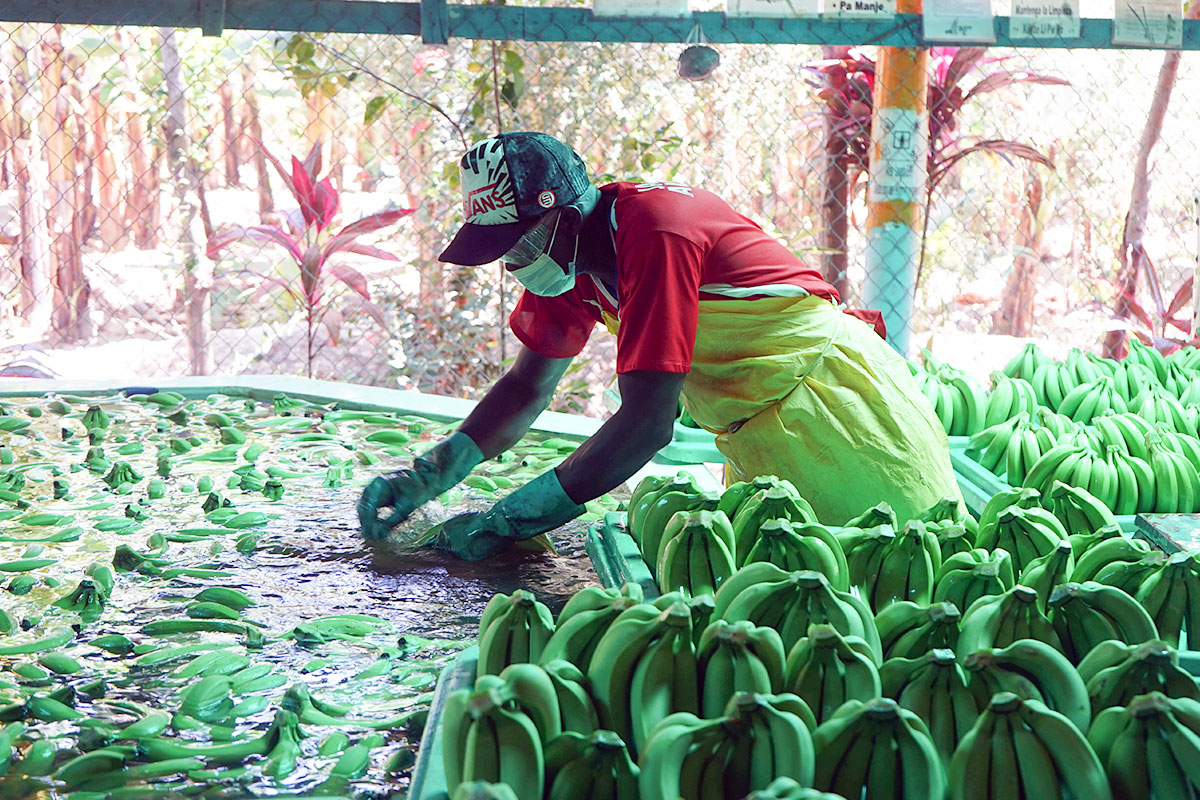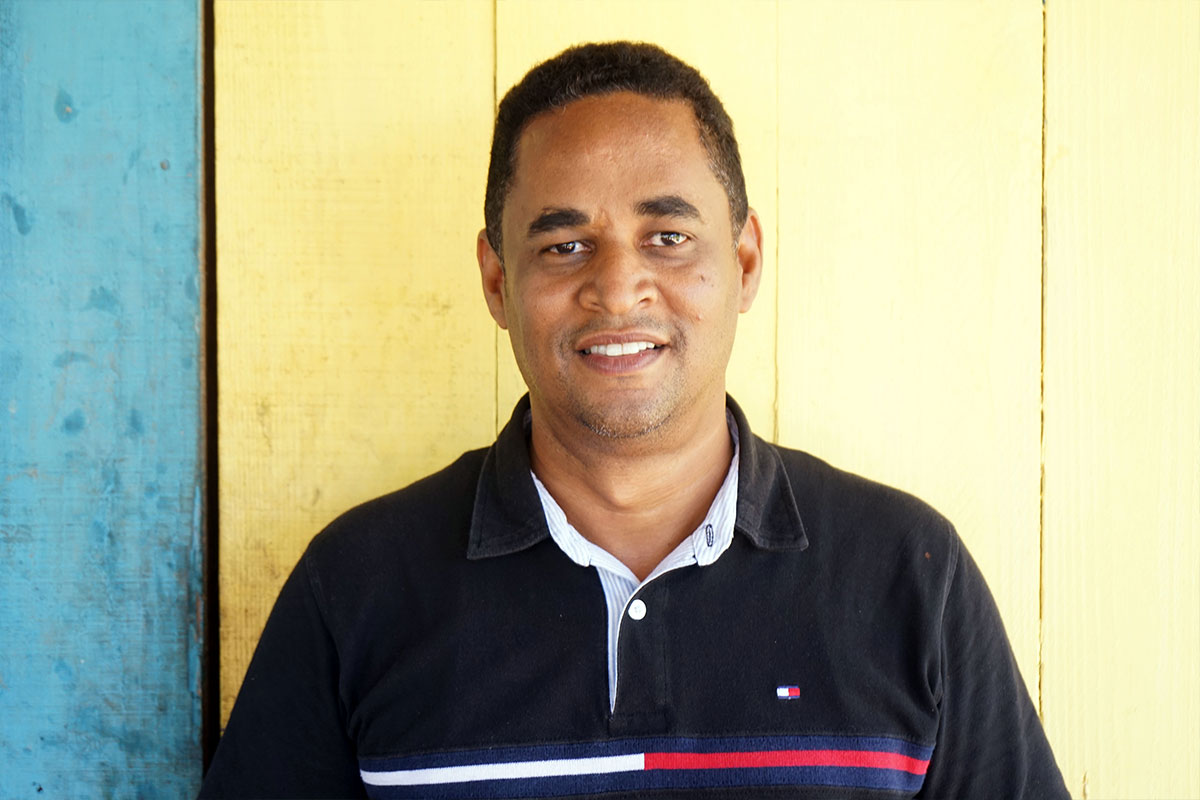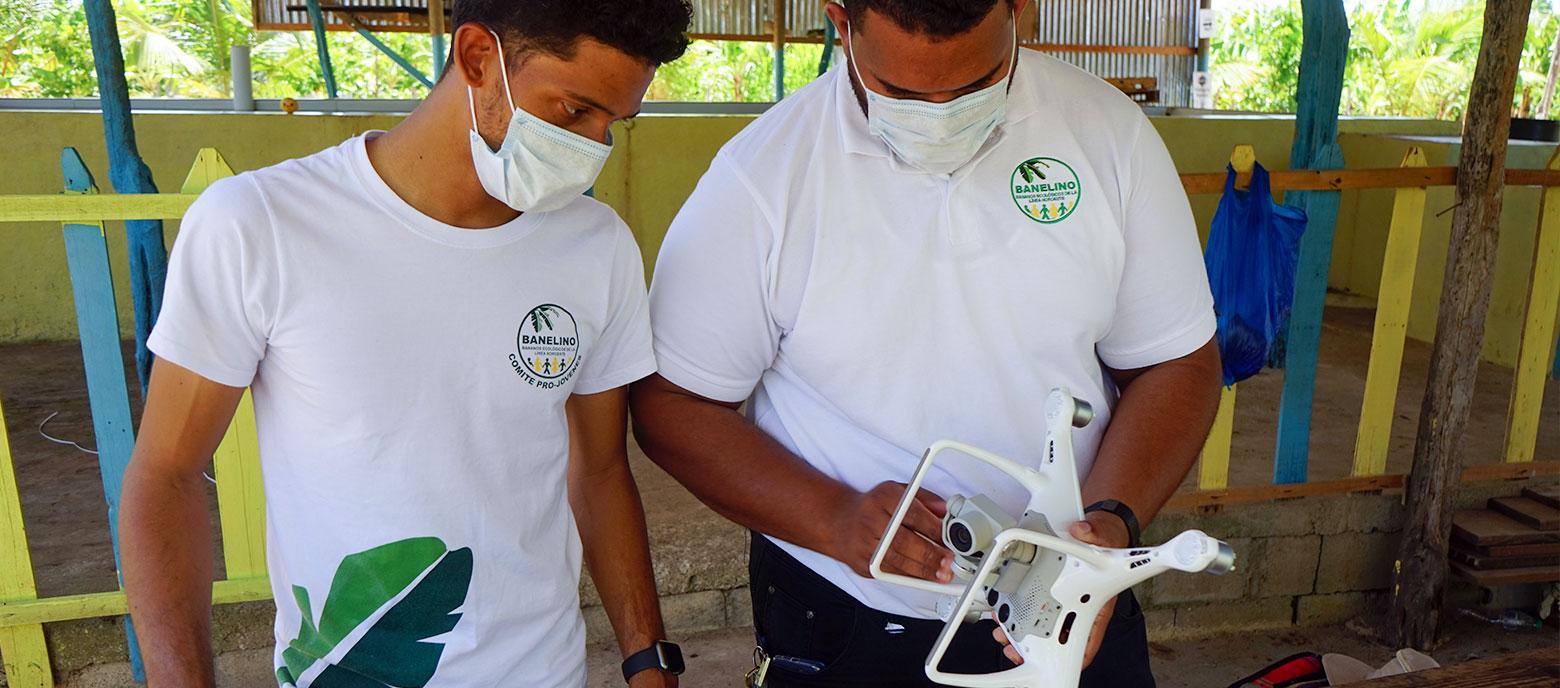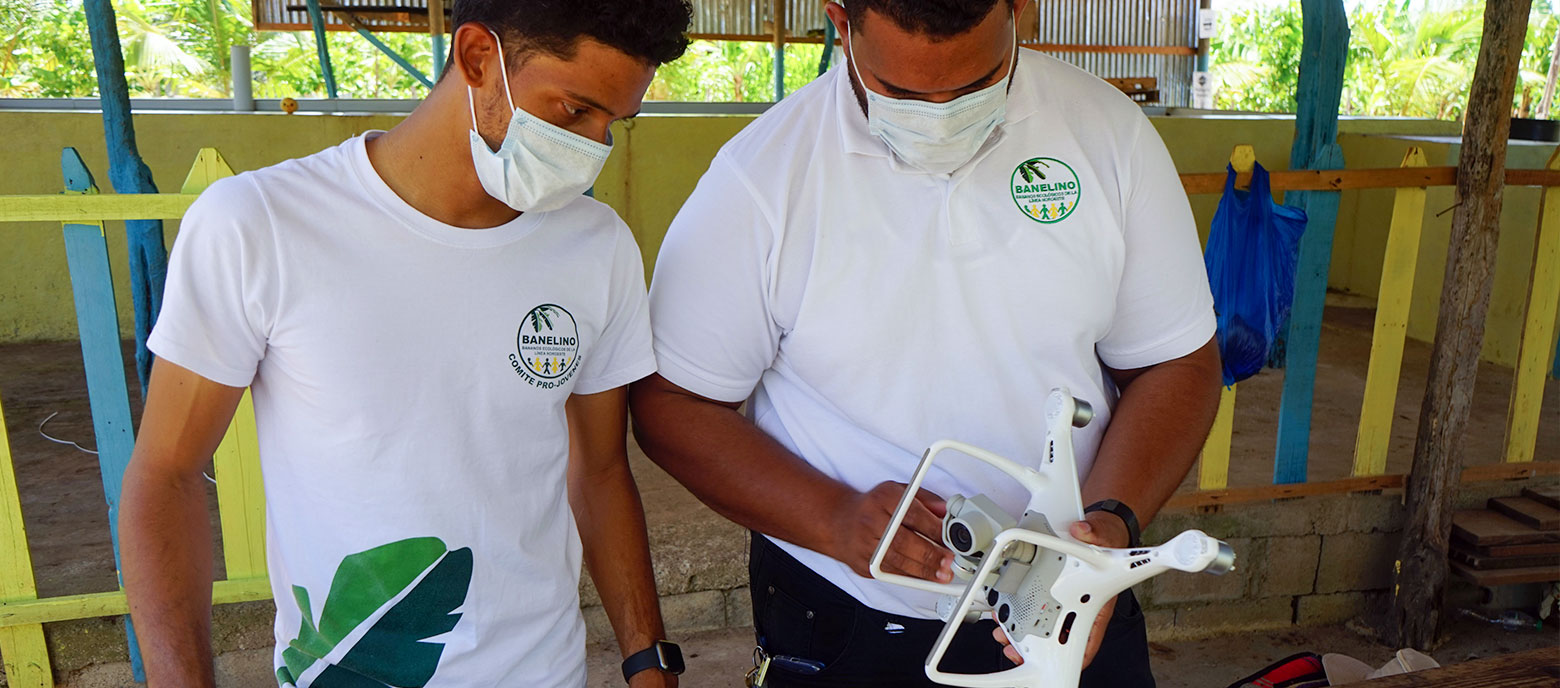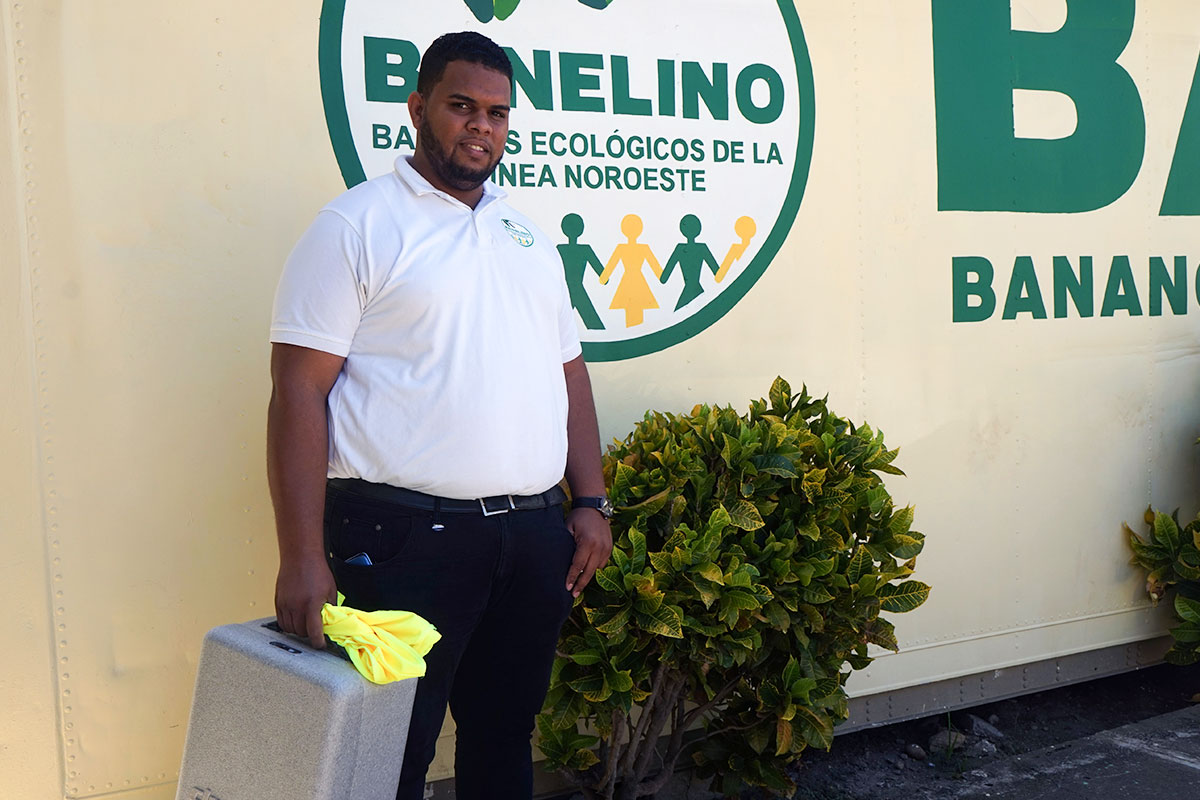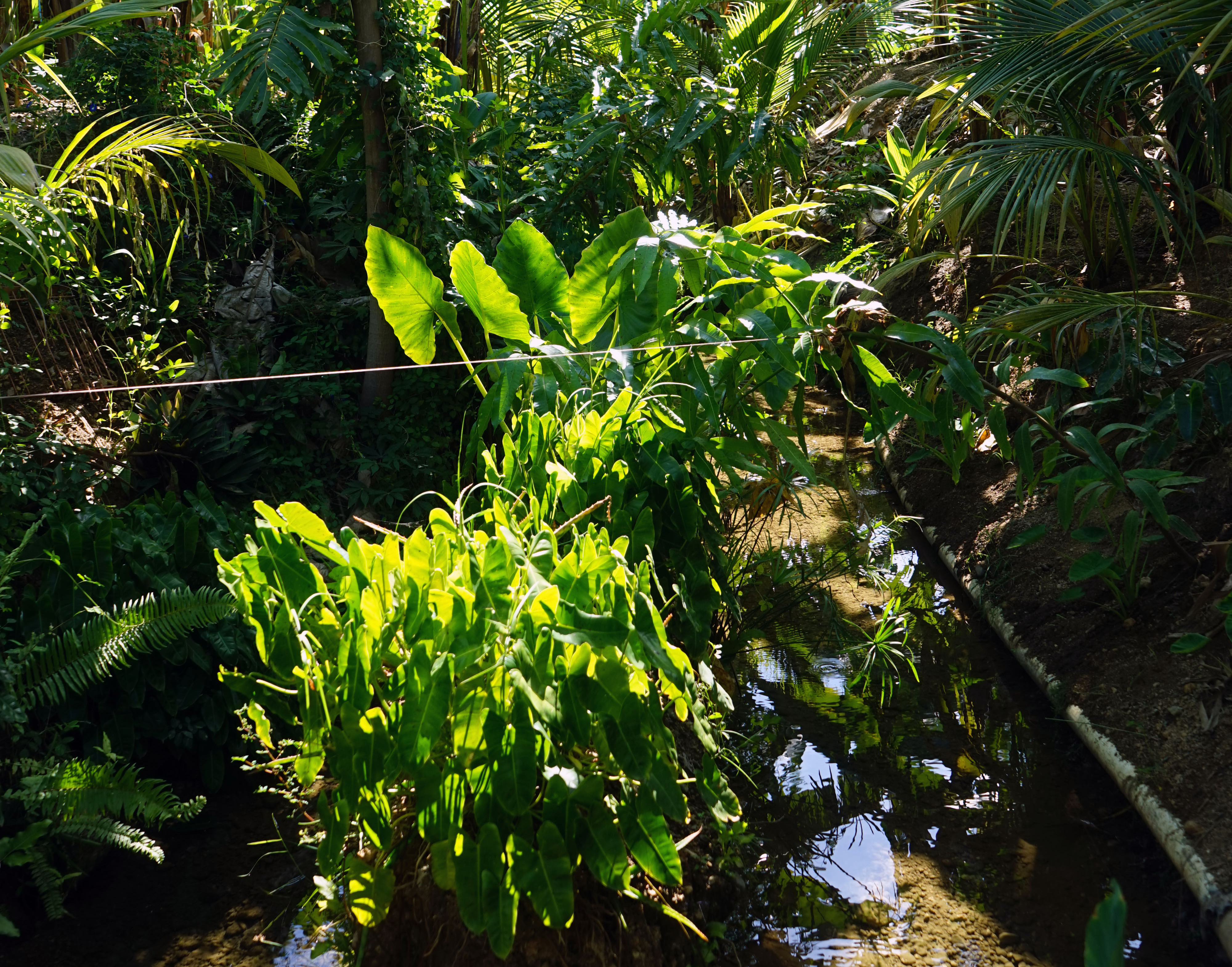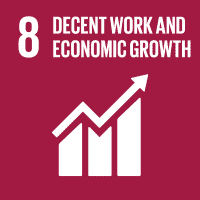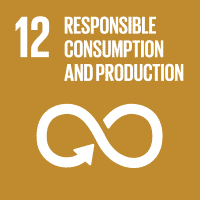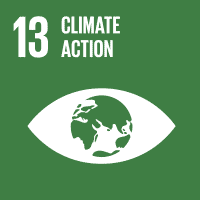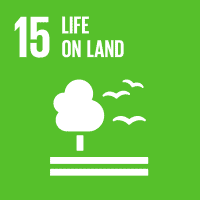It’s midday, and even the banana plants are finding the humid tropical heat too much, closing their leaves to prevent excessive evaporation. But the Núñez family farm, or finca, in the north of the Dominican Republic is a pleasant place to be in this climate. The banana plantation is interspersed with aloe vera, coconut palms and cacao trees, which provide shade, while crystal clear water flows from a spring. Butterflies dart in and out of the trees, and you can hear the birds singing. Dayanara Sánchez is enthusiastic: ‘Farming in harmony with nature fills my heart with joy.’ Her husband Richard Núñez picks some mangoes from a tree and cuts open a coconut – there’s always something healthy to eat or drink here on the finca.
The family business is part of Banelino, a Dominican Republic banana cooperative that has been exporting organic bananas to Europe for many years. The association has more than 360 small farmers as members, and Banelino produces around 10 per cent of all the bananas grown in the country.
